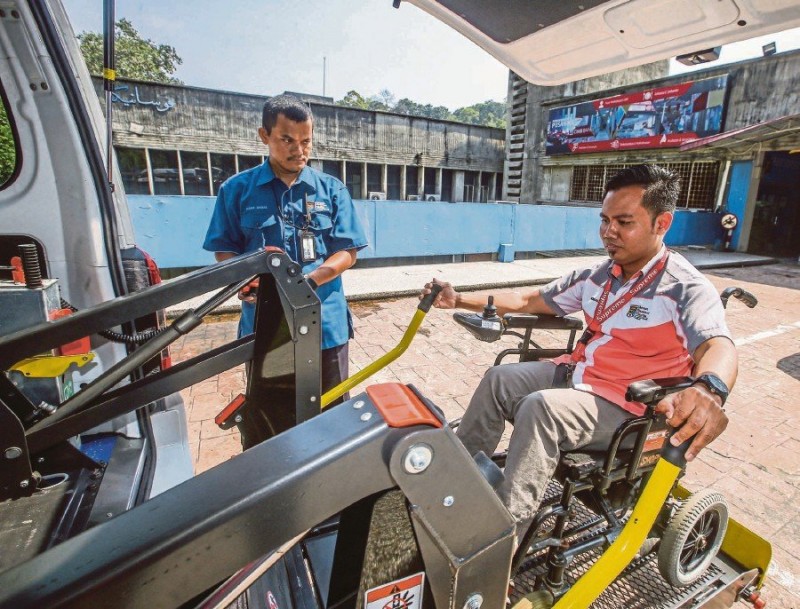
People are tired of the Covid-19 pandemic. Companies are closing down, the tourism sector is suffocating, workers are displaced, and schoolchildren and university students are switching between studying at home and in physical classes.
Also, families are disintegrating, teachers and medical personnel are worn out, mental stress is skyrocketing, the suicide rate is soaring, and the political climate is turbulent.
Due to the pandemic, the International Labour Organisation predicts that 207 million people will be unemployed globally this year, compared with 186 million in 2019.
On top of that, the World Economic Forum asserts that half of all workers in the world need some sort of reskilling. It predicts that by 2025, 85 million jobs may be displaced by automation, and 97 million new jobs will be created, especially in the digital and artificial intelligence (AI) sector.
Despite moderate economic growth, Malaysia's overall unemployment rate is 3.4 per cent, with youth unemployment the highest at 10 per cent.
Each year, about 200,000 Technical and Vocational Education and Training (TVET) students graduate and a number of them fail to get their foot in the door of corporate giants.
Instead, they have no choice but to enter the gig economy to survive. Most established companies are downsizing and not looking for new employees.
The lacklustre performance of Malay enterprises is associated with less innovative Malay entrepreneurs.
Among Malays, involvement in technopreneurship is low compared with non-Malays.
Coined in 1987, the term technopreneurship refers to a combination of technological advancements and entrepreneurial skills.
In the West, technopreneurs such as Steve Jobs, Bill Gates, Jeff Bezos, Larry Page, Sergey Brin, Mark Zuckerberg, and Elon Musk have revolutionised the industry and created jobs.
Among the inventions of these technopreneurs are smart gadgets, powerful software, online business and games, advanced search engine, social media, smart homes, autonomous vehicles, AI, humanoid robots and even green technology.
Due to Covid-19, companies are struggling to reinvigorate a distressed workforce and retain workers in a tight job market.
Universiti Pendidikan Sultan Idris (UPSI) researchers dug into the characteristics and the personality traits of 32 successful Malay technopreneurs who graduated from TVET institutions.
Small- and medium-scale enterprises accounted for 38.3 per cent of the country's gross national product and 17.3 per cent of its exports.
But more SMEs are in the service sector (89.2 per cent) than in manufacturing (4.3 per cent). UPSI's research was focused mainly on Malay technopreneurs in the manufacturing sector who graduated from TVET institutions.
The key finding is that Malay technopreneurs have leveraged their technical background and design thinking to make innovative products.
Our research suggests that a cadre of TVET graduates needs to be nurtured to become technopreneurs.
The study also found that the main elements in the success of the technopreneurs are curiosity, innovative thinking, technical expertise, digital intelligence, capital, business network, resilience, support and spirituality.
The factors that could paralyse Malay technopreneurs, identified from the interviews, included the lack of support and networking, weak leadership and competence, poor marketing, lack of raw materials and master craftsmen and financial difficulties.
The study also found that cybernetic dystopia is one of the weaknesses of Malay technopreneurs.
Zooming in on the mindset of Malay SME technopreneurs, we found that some are easily satisfied with their local success, making them unwilling to compete globally.
TVET is a lifeline for future technopreneurs. Some TVET institutions have embarked on training future technopreneurs, such as Universiti Teknologi Petronas, Universiti Kuala Lumpur, Malaysian Technical University Network, polytechnics, community colleges, vocational colleges, Advanced Technology Training Centre and Mara.
UPSI trains technical teachers to become teacherpreneurs and Universiti Tun Hussein Onn Malaysia is set to become a global technopreneur university.
Source : https://www.nst.com.my/opinion/columnists/2022/03/784076/turn-tvet-graduates-technopreneurs

